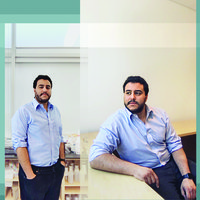Biotechnology & medicine
Leila Pirhaji
She developed an AI-based system that can identify more small molecules in a patient’s body, faster than ever before.

Global
Katharina Volz
A loved one’s diagnosis led her to employ machine learning in the search for a Parkinson’s cure.

Asia Pacific
Ka Yi Ling
Bringing delicious and healthy crustacean meat to consumers by harvesting cells instead of animals

Global
Omar Abudayyeh
He’s working to use CRISPR as a covid-19 test that you could take at home.

China
Yi Shi
Revealing the pathogenic and transmission mechanisms of multiple epidemic viruses
